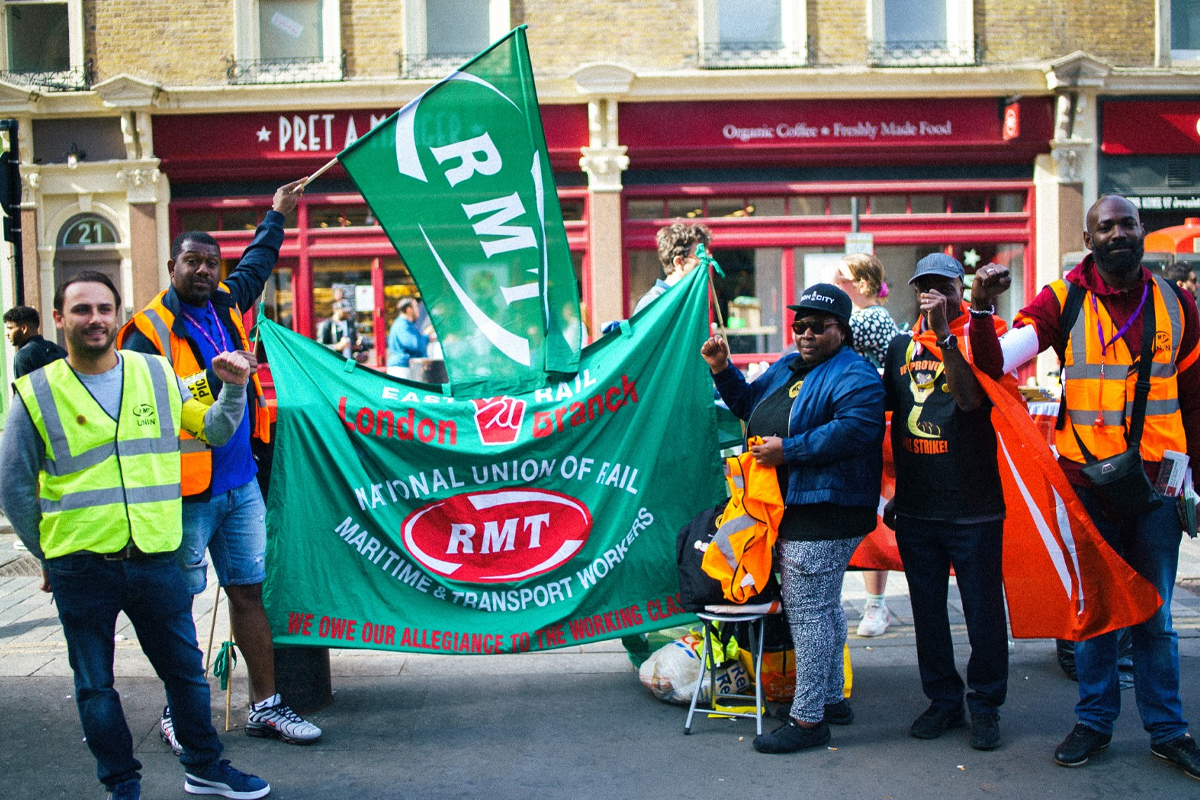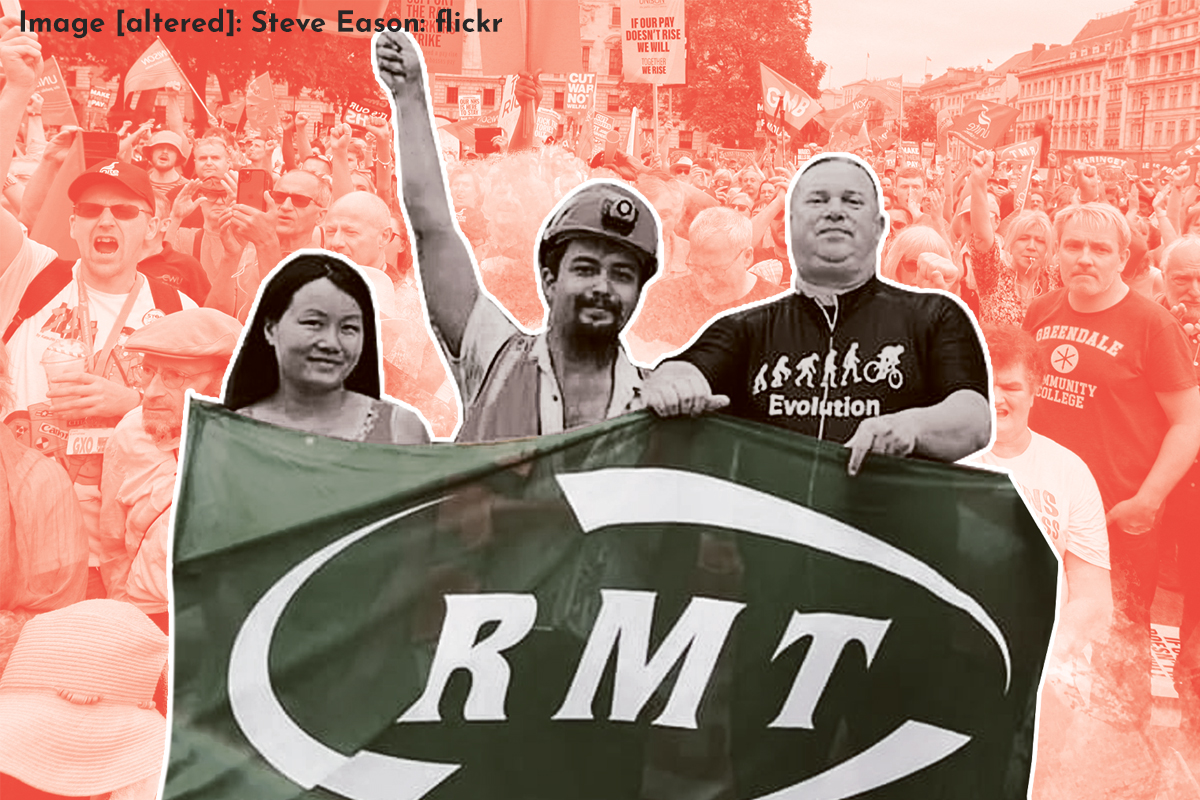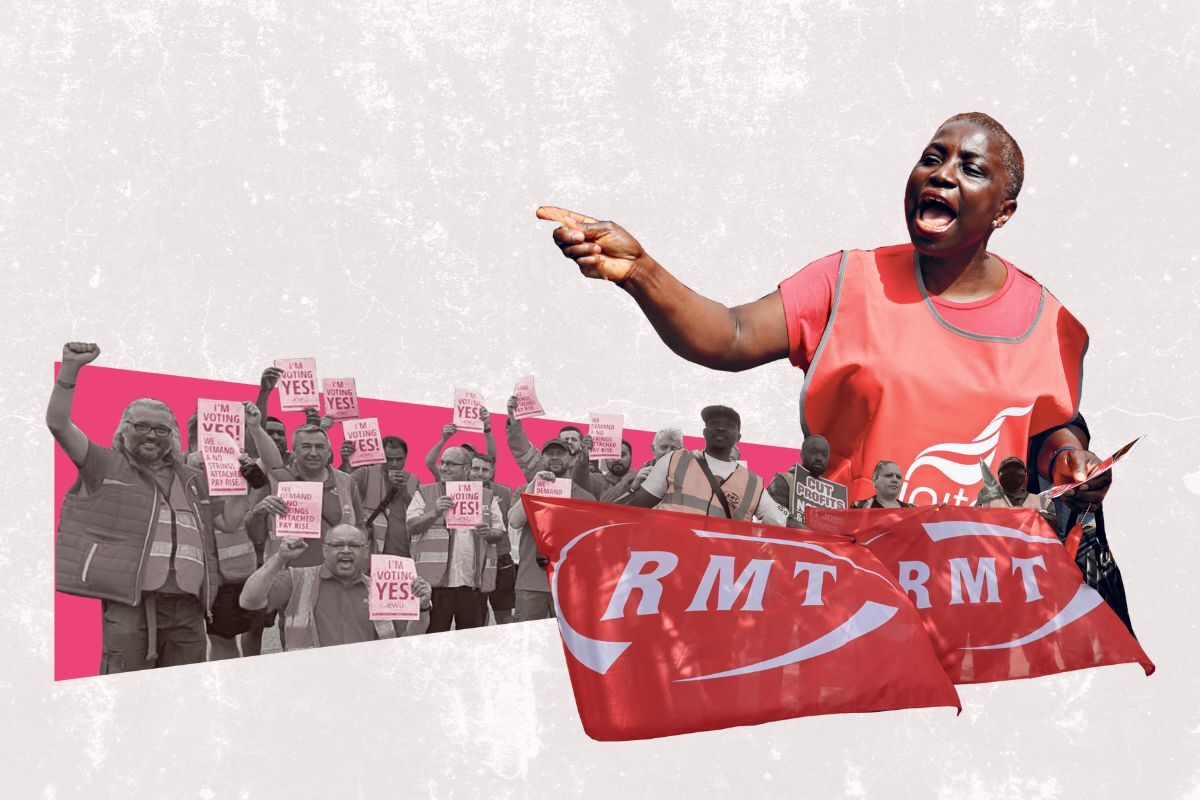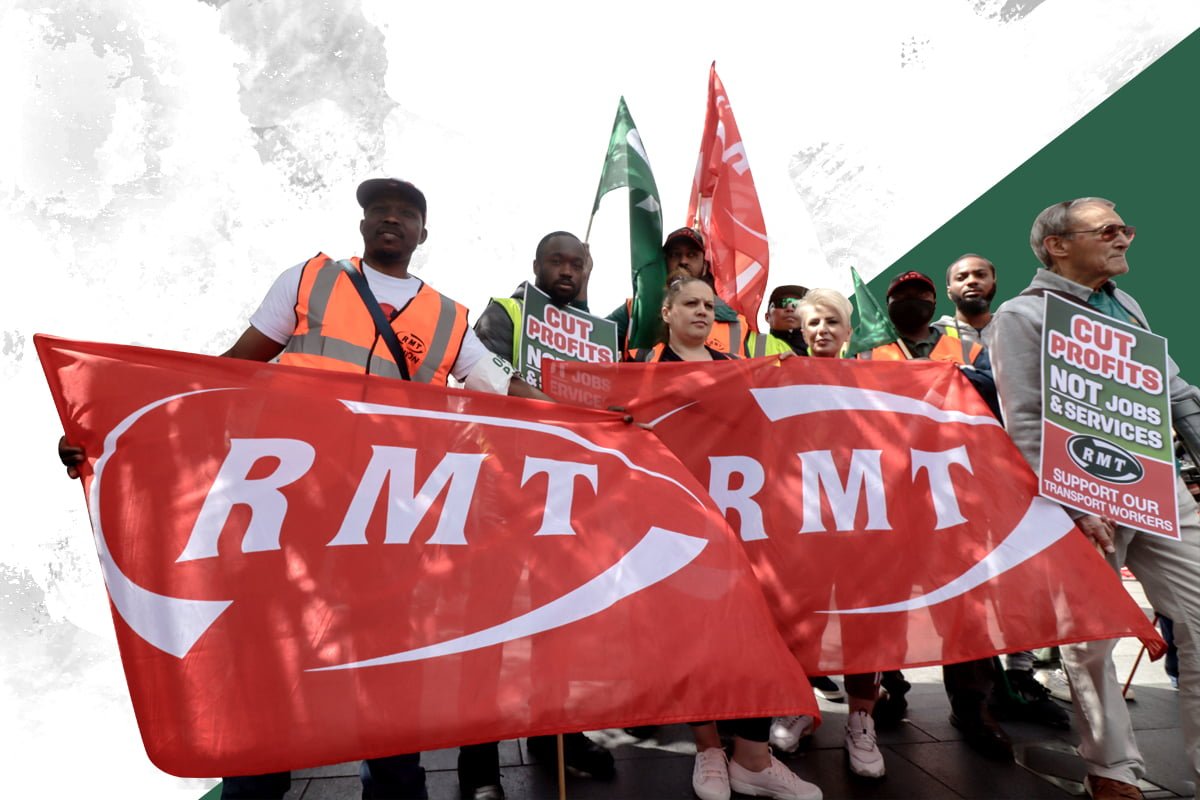The RMT has been at the forefront of this year’s growing strikewave. And now rail workers have voted to continue their struggle. With NHS staff, civil servants, and education workers also mobilising, the stage is set for mass coordinated action.
The RMT reballot for industrial action has confirmed a thumping mandate for further strikes at Network Rail (NR) and 14 train operating companies (TOCs) over the next six months, in the ongoing dispute over jobs, pay, conditions and pensions.
Members have returned a 91.7% Yes vote – up from 89% in the initial ballot – on a virtually identical turnout.
This comes at a time when NR and the Rail Delivery Group, which represents TOC bosses, appear to be on the backfoot.
Before the most recent planned strike, for example, at the eleventh hour, NR offered a two-week period of “intense negotiations”.
On the other side, these rail strikes have provoked a massive shift in class consciousness, with mass coordinated action now on the agenda across the trade union movement.
The Office for National Statistics recently reported that working days lost to industrial action were up 72% and 78% respectively in June and July, compared to 2019.
And from a ‘summer of discontent’, we have passed over into a ‘hot autumn’, with successful strike votes amongst nurses, civil servants, and university workers.
Determination
 The reballot results indicate that support for the rail strike remains rock-solid amongst RMT members, despite the hardships they face. This is significant, demonstrating members’ willingness to fight to the finish.
The reballot results indicate that support for the rail strike remains rock-solid amongst RMT members, despite the hardships they face. This is significant, demonstrating members’ willingness to fight to the finish.
Anecdotal reports indicate concerns around the cancellation of multiple strike days in August and November. But it is also evident that this wavering has not significantly harmed the struggle.
There is now a golden opportunity to build on this militancy and determination.
When building initial support for the strike, the union leadership did an excellent job in organising rallies and briefings to the membership, in order to explain their position clearly and boldly.
Now it is time to escalate and broaden our action. And mass rank-and-file meetings should similarly be used to generate further enthusiasm and militancy amongst the grassroots.
We must show the employers that the RMT and its members have only just begun to fight!
Lies
The bosses, meanwhile, have doubled down on their intransigence and lies.
National Rail, for example, sent senior management to every depot with the argument that their plan of cuts and layoffs was already underway, and was therefore ‘non-negotiable’.
Frequently, meanwhile, emails are circulated stating that “in the current context” an inflation-beating pay deal is unrealistic (we wonder if there would ever be a “context” in which the employers would deem a proper wage increase appropriate).
They go on to say that the current pay offer of 4% is “fair” and “affordable”; and that any increase in wages must be balanced by further “modernisation” – i.e. attacks on our terms and conditions.
The intended message from the bosses is clear: ‘The RMT strikes are pointless. We have already made a fair offer. Further strike action cannot get you anything better.’
Escalation
 The bosses want to demoralise and frighten us into submission. But members have shown that they will not be cowed.
The bosses want to demoralise and frighten us into submission. But members have shown that they will not be cowed.
Recent rounds of one-to-three-day strikes have allowed us to flex our muscles. Now we need to throw some heavy punches. This means preparing for a more intense period of struggle, moving from days of strike action to weeks-long walkouts.
The bosses will continue to argue that the money does not exist to meet our demands. But the real question is: Who pays?
The fact is that the lion’s share of rail profits is not concentrated in any of the TOCs – profitable as they may be – or in National Rail, but in the rolling stock companies. These parasites poured £950 million into shareholders’ pockets in 2020.
Given this largesse, if they are claiming to have no money for pay rises and safety-critical staff, then they must prove it.
We say: Open the books! Let the union and its members see the supposed ‘financial difficulties’ on paper!
And if it really is the case that they cannot afford reasonable demands over pay, jobs, and conditions, then these private companies must be immediately renationalised, under workers’ control.
Campaign
 The RMT leaders have already been prominent in advocating and organising coordinated strike action – with other rail unions and with other sections of the labour movement. This shows the way forward.
The RMT leaders have already been prominent in advocating and organising coordinated strike action – with other rail unions and with other sections of the labour movement. This shows the way forward.
At the time of writing, trade union officials – from the RMT, CWU, PCS, and others – are set to meet on 18 November to discuss plans for joint action.
United strike action between several major unions could therefore be on the cards in the coming months, as voted for at the recent TUC Congress.
This should be the start of a mass campaign of hard-hitting sustained strikes; a coordinated movement that aims to topple the Tories from power, and end the attacks on our class once and for all.
Whatever is ultimately planned, it is clear that our movement needs close cooperation at the grassroots level, as well as at the top. This means establishing rank-and-file strike committees in all workplaces and industries, in order to coordinate walkouts, protests, and picket lines.
As this strikewave builds, consciousness will only grow sharper. And as workers gain confidence in their own strength, the need for socialism and an end to capitalism will only become more apparent.
The bosses and Tories have thrown down the gauntlet. It is time to rise to the challenge.






